
-
 Israel demands hostage release for Gaza ceasefire: Hamas
Israel demands hostage release for Gaza ceasefire: Hamas
-
Palestinian student detained at US citizenship interview

-
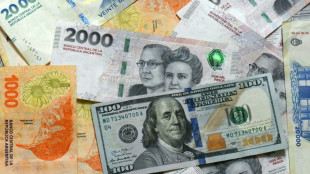 Argentina's peso sinks after currency controls eased
Argentina's peso sinks after currency controls eased
-
LVMH sales dip as Trump tariffs dent luxury tastes
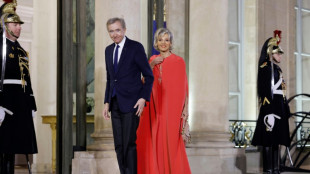
-
 Israeli demands hostage release for Gaza ceasefire: Hamas
Israeli demands hostage release for Gaza ceasefire: Hamas
-
Sean 'Diddy' Combs pleads not guilty to new sex charges

-
 Luka Modric becomes co-owner of Championship club Swansea
Luka Modric becomes co-owner of Championship club Swansea
-
Peru mourns its literary giant Mario Vargas Llosa
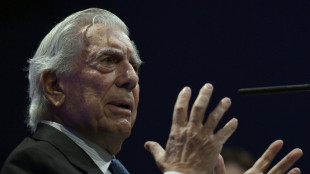
-
 Bournemouth beat Fulham to boost European hopes
Bournemouth beat Fulham to boost European hopes
-
Man charged over Tesla arson as anti-Musk wave sweeps US
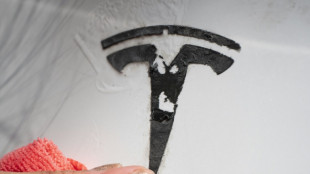
-
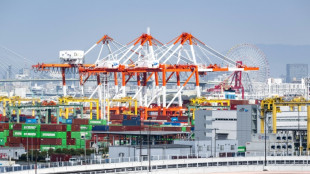 US opens door to tariffs on pharma, semiconductors
US opens door to tariffs on pharma, semiconductors
-
Newcastle manager Howe diagnosed with pneumonia

-
 Alvarez bags penalty double as Atletico beat Valladolid
Alvarez bags penalty double as Atletico beat Valladolid
-
Judge to captain USA in World Baseball Classic

-
 Lukaku stars as Napoli keep pressure on Serie A leaders Inter
Lukaku stars as Napoli keep pressure on Serie A leaders Inter
-
Ukrainians mourn Sumy strike victims as Russia denies targeting civilians

-
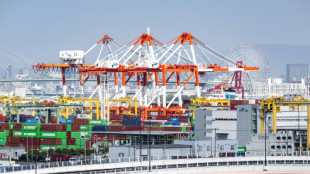 Trump's tariff exemptions give markets relief, but uncertainty dominates
Trump's tariff exemptions give markets relief, but uncertainty dominates
-
Pope paves way for 'God's architect' Gaudi's sainthood

-
 Harvard defies Trump demands for policy changes, risking funding
Harvard defies Trump demands for policy changes, risking funding
-
UN warns of Gaza humanitarian crisis as France, Abbas call for truce

-
 13 million displaced as Sudan war enters third year: UN
13 million displaced as Sudan war enters third year: UN
-
Dhoni snaps Chennai's five-match IPL losing streak

-
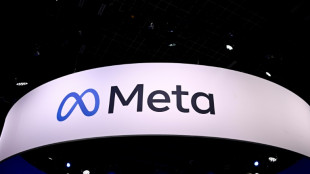 Meta to train AI models on European users' public data
Meta to train AI models on European users' public data
-
Mexican president opposes ban on songs glorifying drug cartels
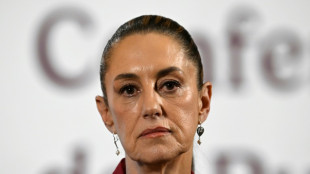
-
 Meta chief Zuckerberg testifies at landmark US antitrust trial
Meta chief Zuckerberg testifies at landmark US antitrust trial
-
Trump blames Zelensky for 'millions' of deaths in Russian invasion
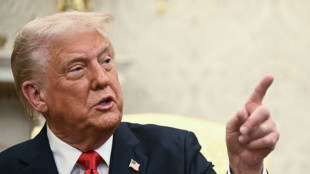
-
 French prosecutor investigates as man confesses to throwing bottle at Van der Poel
French prosecutor investigates as man confesses to throwing bottle at Van der Poel
-
UN warns over Gaza humanitarian crisis as France, Abbas call for truce

-
 PSG's Desire Doue: Talented by name and by nature
PSG's Desire Doue: Talented by name and by nature
-
Death toll from Dominican nightclub disaster rises to 231: minister

-
 Phoenix Suns fire Budenholzer after missing playoffs
Phoenix Suns fire Budenholzer after missing playoffs
-
El Salvador's Bukele rules out returning migrant, in love-fest with Trump
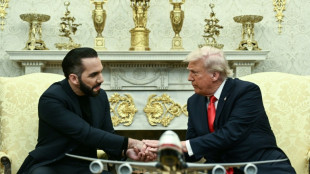
-
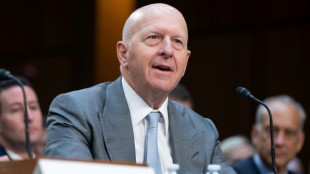 Goldman Sachs profits rise on strong equity trading results
Goldman Sachs profits rise on strong equity trading results
-
Zverev shakes off recent funk to beat Muller in Munich

-
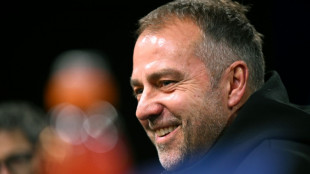 Flick expects Barcelona's 'best' against Dortmund despite first-leg lead
Flick expects Barcelona's 'best' against Dortmund despite first-leg lead
-
'West Philippine Sea' now visible on Google Maps without specific search

-
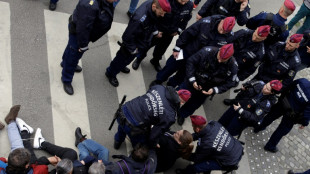 Hungarian lawmakers back constitutional curbs on LGBTQ people, dual nationals
Hungarian lawmakers back constitutional curbs on LGBTQ people, dual nationals
-
Nvidia to build supercomputer chips entirely in US for first time
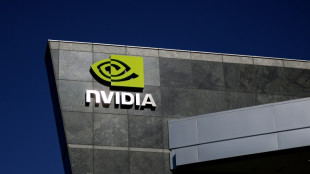
-
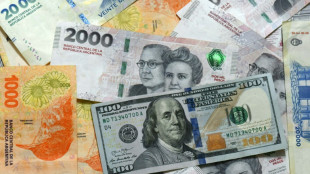 Argentine peso depreciates after exchange controls lifted
Argentine peso depreciates after exchange controls lifted
-
Macron, Abbas call for Gaza truce as Hamas insists on guarantees

-
 Kim Kardashian will testify at Paris jewellery theft trial: lawyer
Kim Kardashian will testify at Paris jewellery theft trial: lawyer
-
Alcaraz hits back at critics before Barcelona Open

-
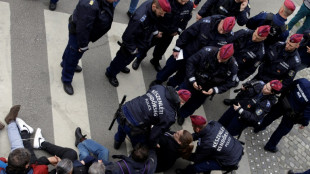 Hungarian lawmakers back curbs on LGBTQ people, dual nationals
Hungarian lawmakers back curbs on LGBTQ people, dual nationals
-
Stocks rise, dollar sags on tech tariff twist

-
 China warns UK against 'politicising' steel furnaces rescue
China warns UK against 'politicising' steel furnaces rescue
-
Trump hosts 'coolest dictator' Bukele in migrant crackdown talks
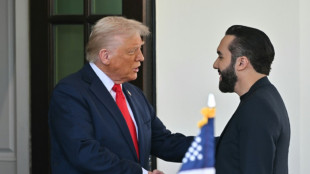
-
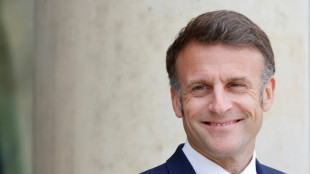 Macron urges 'reform' of Palestinian Authority to run Gaza without Hamas
Macron urges 'reform' of Palestinian Authority to run Gaza without Hamas
-
Trump's tariff exemptions give markets relief, but tensions loom
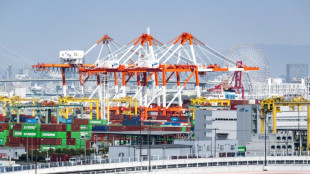
-
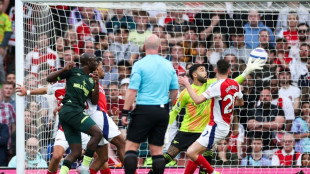 African players in Europe: Wissa deals blow to Arsenal
African players in Europe: Wissa deals blow to Arsenal
-
Stocks rise on new tariff twist


Trump tariffs weigh on Germany as institutes cut forecasts
Leading economic institutes Thursday slashed their 2025 growth forecast for Germany to near stagnation, warning Europe's struggling top economy will face extra pain from US President Donald Trump's tariff blitz.
The six think-tanks, in their latest joint forecast, now predict GDP growth of just 0.1 percent for 2025, down from the 0.8 percent expansion they forecast in September.
For 2026 they forecast growth of 1.3 percent, unchanged from September.
"The geopolitical tensions and the protectionist trade policy of the USA are exacerbating the already tense economic situation in Germany," said Torsten Schmidt, head of research at the RWI-Leibniz Institute for Economic Research.
The downgrade comes the day after the French and Italian governments cut their growth forecasts for the year, citing new barriers to trade, while Spain warned that its growth would suffer, without giving a figure.
Trump's tariffs on aluminium, steel and vehicle imports that came into effect in March and April would likely reduce Germany's economic growth by 0.1 percentage points each for 2025 and 2026, the institutes calculated.
Additional "reciprocal" tariffs announced by the United States on April 2 could double the hit, the institutes said, though they warned that it was difficult to quantify the effect.
Those tariffs were paused for most countries on Wednesday.
The United States was Germany's top trading partner last year and a major market for its exports, ranging from cars to machinery and chemicals.
Adding to its problems, Germany faces a range of deep-seated structural issues including a shortage of skilled workers, increased competition from China and stifling taxes and bureaucracy, the institutes warned.
"These cannot be solved by simply increasing government spending, and make reforms to boost potential output all the more urgent," they said in a statement.
The German government's latest official forecast, released in January, estimates the economy will grow by 0.3 percent for the year. It will present a new forecast on April 24.
- Grim reading for Merz -
The figures make grim reading for Germany's chancellor-in-waiting, Friedrich Merz, who on Wednesday presented a coalition agreement between his centre-right CDU/CSU and the leftist SPD, paving the way for him to take power next month.
A key challenge for the incoming government is reviving Germany's economy, which has shrunk for the past two years due to a manufacturing slump and weak demand in key markets, as well as rising competition from China.
"China is competing with us on the global markets for products where we believed -- for many, many decades -- we were the only ones who could make them so well," said Timo Wollmershaeuser, head of the Ifo institute, one of the think-tanks which produce the forecasts.
Even before taking office, Merz has taken some steps, including by pushing through parliament changes to Germany's so-called "debt brake", which restricts government borrowing and has been criticised for holding back much-needed investment.
The move allows potentially unlimited government borrowing for defence. He also won parliamentary approval for a 500-billion-euro ($552-billion) fund to spend on renovating Germany's creaking infrastructure in the coming years.
Many economists hope the additional investment will help get Germany's economy back on its feet, and the think-tanks calculated it would boost growth by 0.5 percentage points over the next year, assuming an extra 24 billion euros in government spending.
But the coalition's plans also faced criticism, with economists saying the government was dodging the task of tough structural reforms that be costly in the short term but boost growth over the longer term.
"The coalition agreement between the CDU/CSU and SPD is a compromise that largely maintains the status quo," said Marcel Fratzscher, head of the German Economic Institute for Economic Research (DIW).
"The CDU/CSU and SPD have not yet recognised the urgency of the current crisis situation and remain unambitious in many areas."
A.Zbinden--VB
